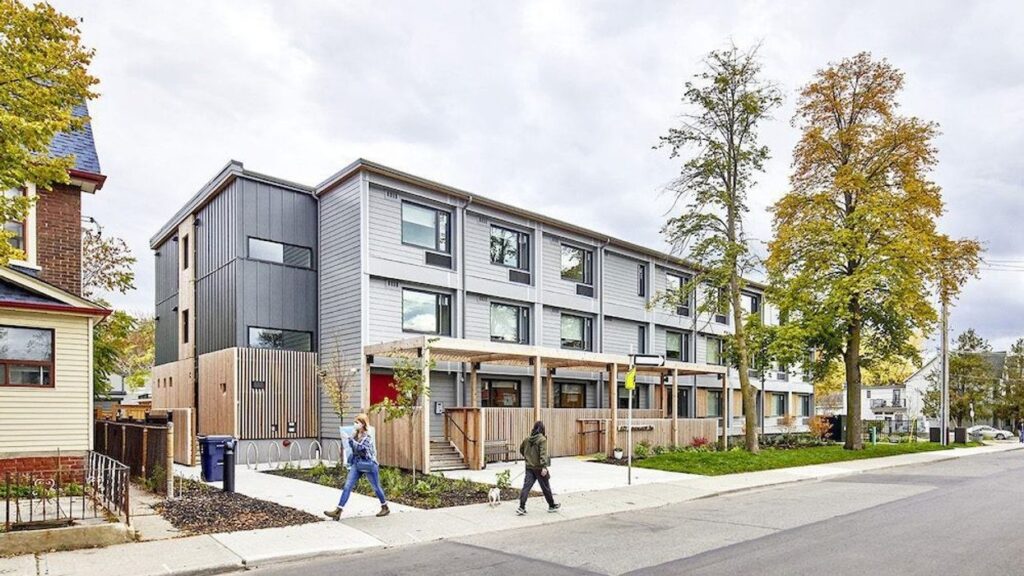
Acoustic design in modular housing: Creating Quieter Spaces
In recent years, there’s been an increasing interest in modular housing due to its efficiency and affordability. However, one crucial aspect that often gets overlooked is the acoustic design. As more people choose modular homes, understanding how to create a quieter and more comfortable living environment becomes essential. This article delves into the intricacies of acoustic design in modular housing, exploring its significance and offering practical solutions.

Why Acoustic Design Matters
When it comes to modular housing, sound control is not just about comfort; it’s about enhancing the quality of life. Poor acoustics can lead to increased stress levels, impaired concentration, and even health issues. By prioritizing acoustic design, homeowners can enjoy a peaceful and harmonious living environment.
Understanding Sound in Modular Homes
The Nature of Sound
Sound travels in waves and can pass through various materials, leading to noise pollution inside homes. In modular homes, the construction materials and techniques used can significantly affect how sound behaves. Understanding the nature of sound is the first step in effective acoustic design.
Common Acoustic Challenges
Modular homes, while efficient, can face unique acoustic challenges due to their construction. Thin walls, ceiling connections, and floor assemblies may not provide adequate sound insulation. Addressing these challenges is crucial for a serene home environment.
Elements of Effective Acoustic Design
Material Selection
Choosing the right materials is fundamental to acoustic design. Materials like soundproof drywall, acoustic panels, and insulation can significantly reduce noise transmission. The use of these materials in modular housing can make a substantial difference in noise levels.
Architectural Design
Architectural elements such as room layout, wall angles, and ceiling height play a vital role in acoustics. Thoughtful architectural design can help mitigate noise and enhance sound quality within modular homes.
Technological Advancements
Modern technology offers innovative solutions for acoustic design. From smart soundproofing systems to noise-cancelling devices, integrating technology in modular housing can lead to significant improvements in sound control.
Practical Tips for Homeowners
Insulation Techniques
Effective insulation is key to reducing noise. Homeowners can consider options like blown-in cellulose or foam insulation to enhance soundproofing in modular homes.
Soundproofing Windows and Doors
Windows and doors are common entry points for noise. Installing double-glazed windows and solid-core doors can help minimize sound transmission.
Flooring Solutions
Carpeting and underlayments can absorb sound and reduce noise levels. Homeowners can explore these options for a quieter living space.
Case Studies and Real-Life Examples
Real-life examples of successful acoustic design in modular housing can provide valuable insights. These case studies highlight effective strategies and their impact on residents’ quality of life.
The Future of Acoustic Design in Modular Housing
As technology and construction techniques evolve, the future of acoustic design in modular housing looks promising. Innovations in materials and design will continue to enhance the living experience in these homes.
Conclusion
In conclusion, acoustic design is a critical component of modular housing that significantly impacts residents’ comfort and well-being. By understanding the principles of sound and implementing effective design strategies, homeowners can create quieter, more enjoyable living spaces.

FAQs
What is the importance of acoustic design in modular homes?
Acoustic design in modular homes is crucial for enhancing comfort, reducing stress, and improving overall quality of life by minimizing noise pollution.
How can I improve the acoustics in my modular home?
Improving acoustics in a modular home can be achieved through material selection, architectural design, and technological advancements, including soundproofing solutions.
Are there specific materials recommended for soundproofing modular homes?
Yes, materials like soundproof drywall, acoustic panels, and proper insulation are recommended for effective soundproofing in modular homes.
For more insights on modular housing, you can visit this article on the sustainable aspects of modular housing. Additionally, check out cultural perceptions and minimalist lifestyles in modular homes for more information.
This article contains affiliate links. We may earn a commission at no extra cost to you.